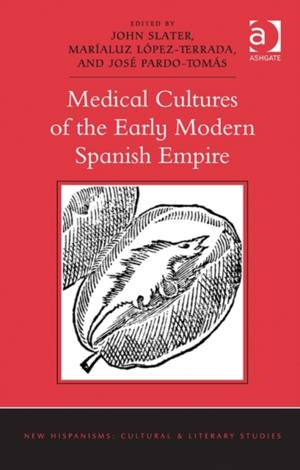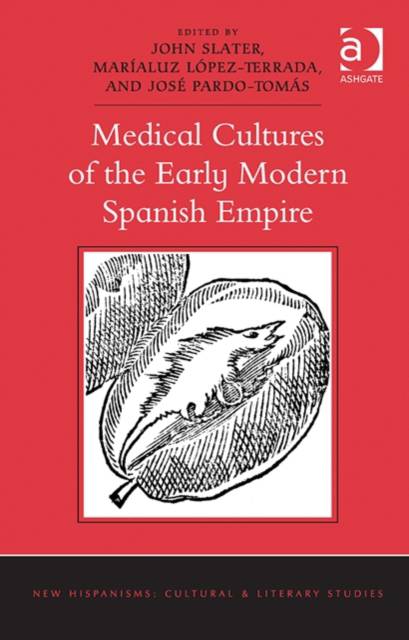
Bedankt voor het vertrouwen het afgelopen jaar! Om jou te bedanken bieden we GRATIS verzending (in België) aan op alles gedurende de hele maand januari.
- Afhalen na 1 uur in een winkel met voorraad
- Gratis thuislevering in België
- Ruim aanbod met 7 miljoen producten
Bedankt voor het vertrouwen het afgelopen jaar! Om jou te bedanken bieden we GRATIS verzending (in België) aan op alles gedurende de hele maand januari.
- Afhalen na 1 uur in een winkel met voorraad
- Gratis thuislevering in België
- Ruim aanbod met 7 miljoen producten
Zoeken
Medical Cultures of the Early Modern Spanish Empire
John Slater, Maríaluz López-Terrada, José Pardo-Tomás
€ 182,45
+ 364 punten
Uitvoering
Omschrijving
Early modern Spain was a global empire in which a startling variety of medical cultures came into contact, and occasionally conflict, with one another. Spanish soldiers, ambassadors, missionaries, sailors, and emigrants of all sorts carried with them to the farthest reaches of the monarchy their own ideas about sickness and health. These ideas were, in turn, influenced by local cultures. This volume tells the story of encounters among medical cultures in the early modern Spanish empire. The twelve chapters draw upon a wide variety of sources, ranging from drama, poetry, and sermons to broadsheets, travel accounts, chronicles, and Inquisitorial documents; and it surveys a tremendous regional scope, from Mexico, to the Canary Islands, the Iberian Peninsula, Italy, and Germany. Together, these essays propose a new interpretation of the circulation, reception, appropriation, and elaboration of ideas and practices related to sickness and health, sex, monstrosity, and death, in a historical moment marked by continuous cross-pollination among institutions and populations with a decided stake in the functioning and control of the human body. Ultimately, the volume discloses how medical cultures provided demographic, analytical, and even geographic tools that constituted a particular kind of map of knowledge and practice, upon which were plotted: the local utilities of pharmacological discoveries; cures for social unrest or decline; spaces for political and institutional struggle; and evolving understandings of monstrousness and normativity. Medical Cultures of the Early Modern Spanish Empire puts the history of early modern Spanish medicine on a new footing in the English-speaking world.
Specificaties
Betrokkenen
- Auteur(s):
- Uitgeverij:
Inhoud
- Aantal bladzijden:
- 326
- Taal:
- Engels
- Reeks:
Eigenschappen
- Productcode (EAN):
- 9781472428134
- Verschijningsdatum:
- 10/10/2014
- Uitvoering:
- Hardcover
- Formaat:
- Genaaid
- Afmetingen:
- 156 mm x 233 mm
- Gewicht:
- 759 g

Alleen bij Standaard Boekhandel
+ 364 punten op je klantenkaart van Standaard Boekhandel
Beoordelingen
We publiceren alleen reviews die voldoen aan de voorwaarden voor reviews. Bekijk onze voorwaarden voor reviews.












